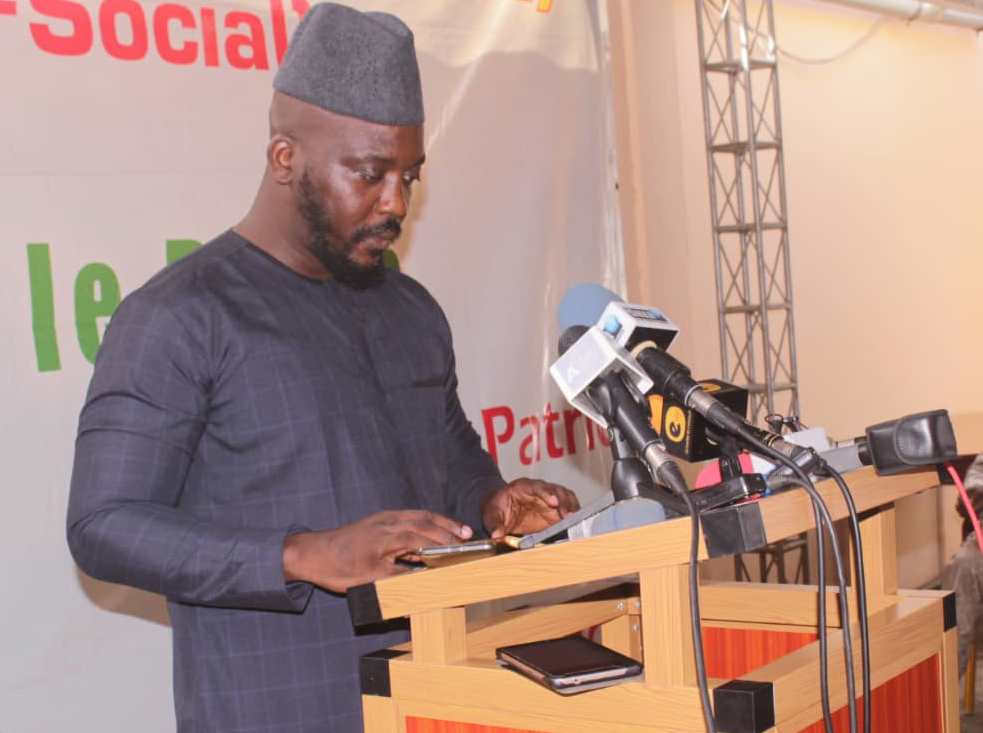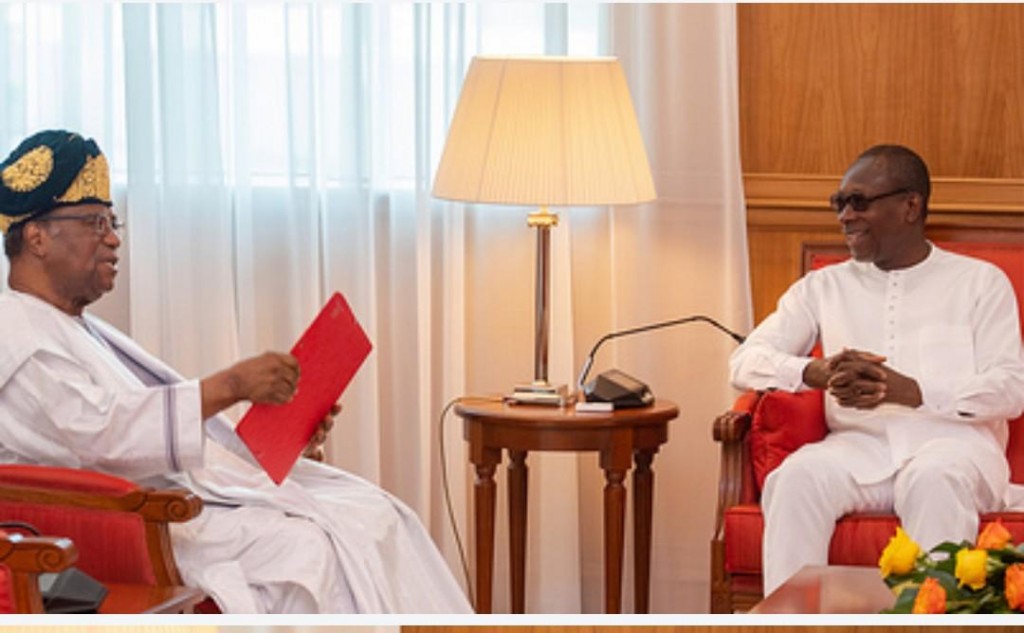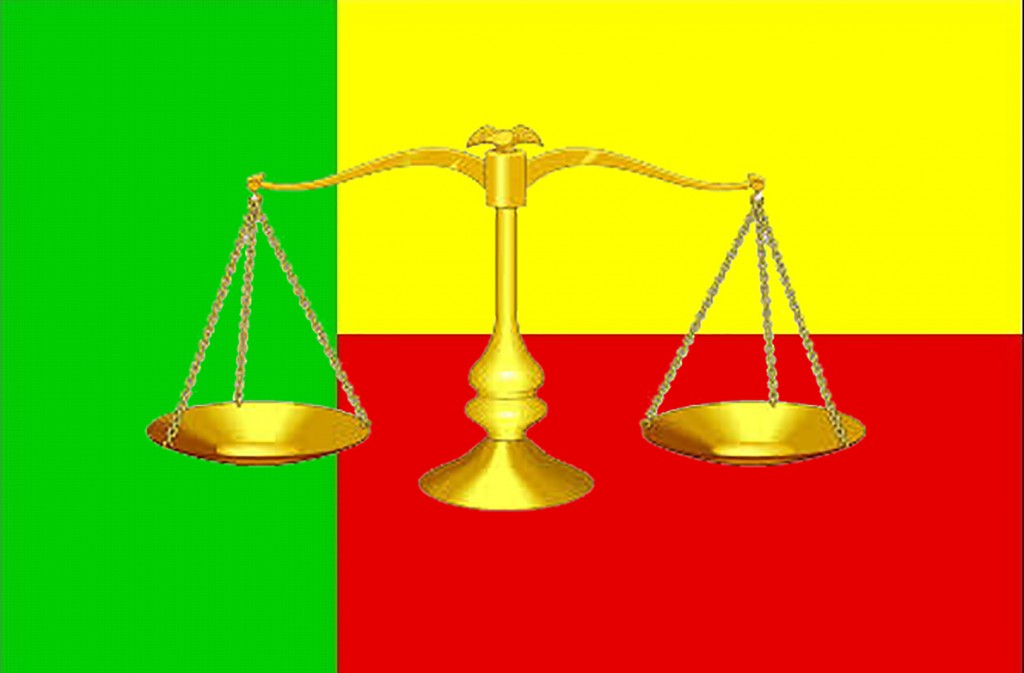Tension rises in Benin as talks to clear the way for legislative elections break down
BY JIBRIL TURE
Updated on Monday, 1 April at 10 a.m.
The painful execution of the mandate the speaker of the Beninese parliament, Adrien Houngbedji, received from President Patrice Talon on 6 March to find a consensual solution to the crisis born out of the opposition parties not being found qualified to contest the 28 April legislative elections has led nowhere. The week ended with the specter of violence hanging over the nation.
On Friday 29 March, a spokesperson for the so-called president’s majority in parliament, BMP, addressed the collapse of the talks during a plenary session in troubling, dramatic terms.
The declaration read by Representative Jean-Michel Abimbola on behalf of the presidential majority in parliament states:
“Over the past several days, and consistent with their logic of agitating the specter of menace to social peace, some political actors have referred to article 66 of our fundamental law as the ultimate recourse to force the participation of all the political parties that are not in compliance with the law to contest the next legislative elections, instead of the consensus advocated for and forcefully requested by the head of state.”
For the presidential majority in parliament, the case is closed, and the 28 April elections will not see the participation of the opposition parties. Their spokesperson also said:
“The legislators of the president’s majority in parliament now recognize the absence of the consensus so dear to the head of state, require that the election time table be adhered to, and call on the Beninese people to massively go to the polling centers on 28 April to vote.”
But it is not that simple, and the blame for the stalemate falls on both sides.
In a press briefing held hours later, the minority group in parliament—another phrase to refer to the opposition—contradicted their colleagues’ statement, saying, in essence, that the members of the president’s majority in parliament, too, required to consult with their leaders, and later resorted to “delaying tactics” by resurrecting the plans to amend article article 80 of the constitution, which had been rejected by consensus.
According to the minority group, both groups did meet, around 2 p.m, not in the morning as the majority claimed, to review the new set of proposals and agreed to meet later that same day around 8 p.m. “and work until 2 in the morning if necessary, to find a consensus.” According to the minority group, the majority group never showed up for the meeting planned for that evening. The spokesperson for the minority group stated during the press briefing held on Friday:
“We know they are scared, but that’s no reason to lie, to steal. This is gross, unacceptable cheating. There will be no election without the opposition.”
Chronology of the unprecedented crisis
From 6 March and onward, after being directed by President Talon to seek a legal solution in the parliament to end the crisis, Speaker Houngbedji met with several key-members of the country’s political elite to seek their thoughts. That included the two former presidents alive and two of Benin’s best-known constitutional law scholars. A week later, the speaker chaired a meeting of the heads of the parliamentary commissions to examine the various proposals collected. This led to the forming of a five-member joint committee comprising the speaker himself and two representatives from the opposition and two from the presidential majority in parliament. The committee was responsible for coming up with a road map out of the crisis.
They envisioned two derogatory clauses to the controversial chart of the political parties and the electoral code, and a change to article 80 of the constitution to extend the current parliamentary session by 45 days. The set of proposals, which was signed on by all the members of the joint committee, was scheduled to be introduced, discussed and voted on in the plenary session. But that proved a painful exercise.
Some members of the opposition parties whose own representatives signed on the proposals rejected them. Others required that their parties, which have failed to meet the requirements of the new laws governing political parties be re-instated before they would participate in the talks.
In the face of the messy imbroglio marred by no shows of representatives of both opposition and majority parties at crucial meetings, Speaker Houngbedji on 21 March turned over the proposals to the commission on laws. The commission got down to work on 25 March but the derogatory clauses were defeated in the plenary session held two days later, on 28 March. Then new proposals were quickly put in the hands of the lawmakers, with a vote planned for the next day. Representatives of the opposition parties required time to consult with their leaders for instructions, but never returned to the parliament for the vote. Which caused the majority to conclude the game was over, hence their statement.
The specter of violence
Despite the above, since the beginning of the crisis almost a month ago, members of the opposition daily proclaim their parties’ determination to contest the upcoming legislative elections anyway. Their determination is rooted in article 66 of the Beninese constitution which states that “in case of a coup, putsch, attack by mercenaries or an attack of any kind, any member of a constitutional entity has the right and the duty to resort to all means possible to restore constitutional legitimacy, including existing military cooperation and defense agreements.”

During the Thursday plenary session prior to the vote on the proposed derogatory clauses, several members of the opposition reiterated their readiness to act in the spirit of this article, in violent terms unheard of in a country that has earned a reputation throughout the continent for its commitment to peace.
Representative Guy Mitokpe stood out in his defiance to the Talon regime and his advocates in the parliament, the 62 lawmakers that support the government’s actions and policies. “The consensus we are seeking cannot be found in the parliament,” said the lawmaker, adding:
“This is the very parliament where the two laws that we are now questioning were voted. The chart of the political parties was used to exclude the opposition, and the electoral code was used to disqualify those they did not want to see take part in the next elections.”
Not unlike his colleagues of the opposition and an outright angry segment of the population, Mitokpe also said: “The whole process, which works to their advantage, is a fundamental threat to our country’s stability.”
He then added, as some of his colleagues listened in with concerns showing on their faces:
“These people want to burn the country. But we’ll help them save democracy. We will not back down. We will not back down […] No one is too young to die. We’ll help them achieve their goal.”
Echoing a widespread sentiment, the outraged legislator sounded ready to die as martyr:
“Nothing will deter us. You send the tanks, you send the police, you barricade the parliament building. You will have the blood of innocent people on your conscience. Because people will go out.”
He warned people will go out and cause enough trouble to make sure the election does not take place. Then he crowned his angry statement by saying:
“When they say that the Beninese people are committed to peace, the Beninese people are no less courageous than the Yemenites or the Somalians. Human beings are conditioned by facts. The chromosome in a suicide bomber’s body is not specific to a region of the world. Suicide bombers are the products of facts. Nations are destroyed by injustice.”
President Talon’s continued pursuit of a consensus

President Talon has not relented in his efforts to dialogue with key national political actors to forge a way out of the crisis. He met again with former President Nicephore Soglo at the presidential palace during the week. At the time of this writing, there is no pubic account of their meeting. According to local news reports, former President Yayi Boni turned down Talon’s invitation that was supposed to be delivered to him by Talon’s Minister of Interior Saca Lafia (whose office reviewed and rejected the parties’ applications to conform with the new requirements.) The local media reports that Yayi refused to meet with Saca Lafia, and speculates that the former president did so to state his disapproval of the minister’s handling of the parties’ applications.



